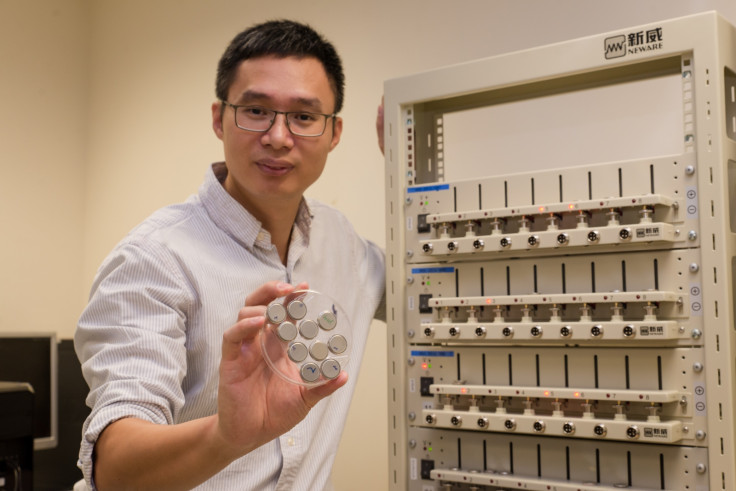Ultrafast Lithium Ion Battery Can Recharge 70% In Two Minutes

A new battery that can be recharged up to 70% in just two minutes has been developed by scientists from Nanyang Technological University (NTU Singapore).
The fast-charging next generation lithium-ion batteries also have a long lifespan of 20 years, helping to cut down waste generated by disposed batteries.
Associate Professor Chen Xiaodong from the School of Materials Science and Engineering at NTU Singapore who invented the battery expects it to hit the market in two years' time.
The new batteries will enable electric vehicles to charge 20 times faster than the current technology. It will be able to endure more than 10,000 charging cycles – 20 times more than the current 500 cycles of today's batteries, says a press release from NTU.
The team replaced the traditional graphite used for the anode (negative pole) in lithium-ion batteries with a new gel material made from titanium dioxide.
In a simple process they turned the dioxide into tiny nanotubes that helped speed up the chemical reactions in the battery.
Titanium dioxide is abundant, cheap and safe material found in soil and is used widely as a food additive and in cosmetics.
The new batteries also do away with additives needed to bind the electrode to the anode, a process which reduced the speed of ion transfer in earlier batteries.
NTU professor Rachid Yazami, the co-inventor of the lithium-graphite anode 34 years ago that is used in most lithium-ion batteries today, said Prof Chen's invention is the next big leap in battery technology.
With the new batteries, the stage is set for the transition to affordable and convenient electric vehicles that will also help cut down on pollution and carbon emissions. Long recharge times and poor battery life have been among some reasons electric vehicles have not taken off.
© Copyright IBTimes 2024. All rights reserved.






